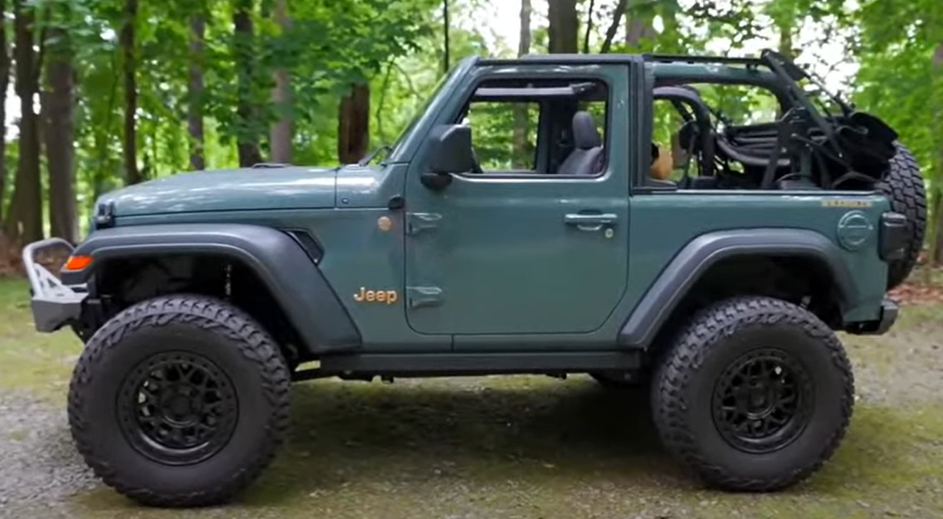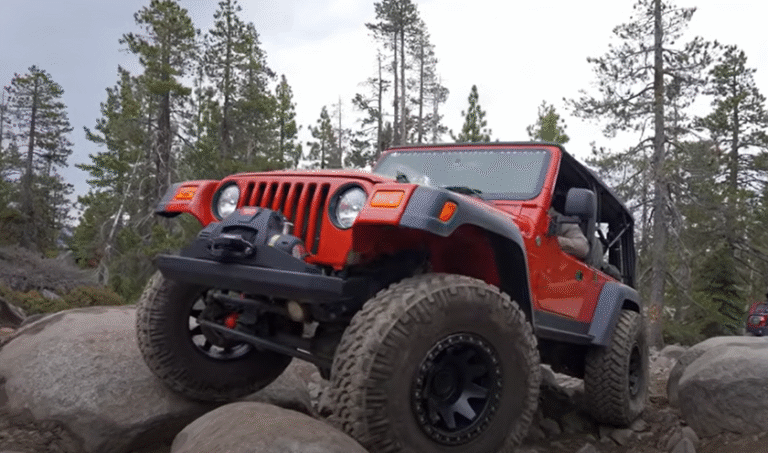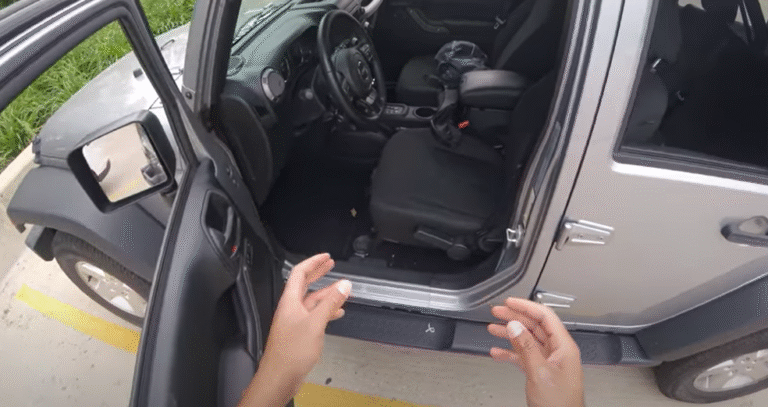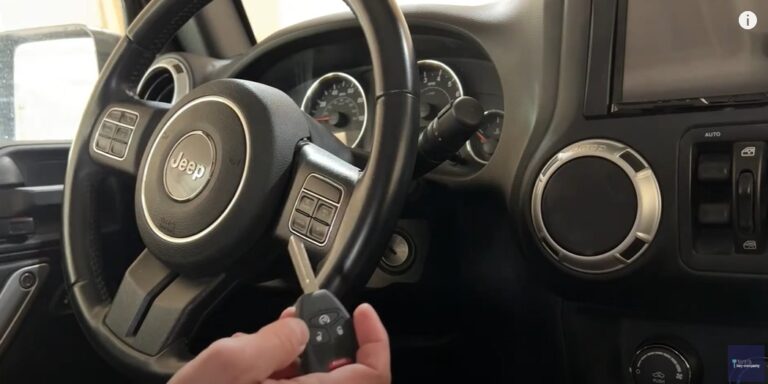How Long Does a Jeep Wrangler Last: Unveiling its Longevity Secrets
A Jeep Wrangler can last for about 20 years or 300,000 miles. Jeep Wranglers are known for their durability and longevity, making them a popular choice for off-road enthusiasts.
With proper maintenance and care, a Jeep Wrangler can last for up to 20 years or accumulate 300,000 miles on the odometer. This rugged vehicle is built to withstand harsh driving conditions and rough terrain, ensuring reliability and longevity for its owners.
Whether you use it for daily commuting or adventurous off-roading, a Jeep Wrangler has the potential to provide years of reliable service. So, if you’re considering purchasing a Jeep Wrangler, rest assured that with proper maintenance and care, it can last you a long time.
Factors Affecting The Lifespan Of A Jeep Wrangler
The lifespan of a Jeep Wrangler is influenced by factors such as regular maintenance, driving conditions, and usage. With proper care and upkeep, a Jeep Wrangler can last for many years, providing adventurous fun and off-road capabilities.
The lifespan of a Jeep Wrangler is influenced by various factors that impact its engine and mechanics, maintenance practices, driving conditions, and usage frequency. Understanding these factors will help you take better care of your Jeep and extend its longevity.
Let’s delve into each of these factors and see how they contribute to the lifespan of a Jeep Wrangler.
Engine And Mechanics
The engine and mechanics play a vital role in determining how long your Jeep Wrangler will last. Here are some factors to consider:
- Engine Maintenance: Regular oil changes, filter replacements, and tuning will keep your engine running smoothly.
- Quality Parts: Using genuine and high-quality parts will ensure optimal performance and durability.
- Wear and Tear: Over time, components like belts, hoses, and gaskets may wear out and require replacement to maintain efficiency.
Maintenance Practices
Proper maintenance practices significantly impact the lifespan of your Jeep Wrangler. Consider the following:
- Routine Inspections: Regularly inspecting your Jeep’s brakes, suspension, and fluids can help identify issues before they become major problems.
- Timely Repairs: Addressing minor issues promptly can prevent them from escalating and causing extensive damage.
- Cleaning and Protection: Regularly cleaning both the exterior and interior of your Jeep can help safeguard against premature deterioration.
Driving Conditions
The driving conditions you subject your Jeep Wrangler to can have a substantial impact on its lifespan. Take note of the following:
- Off-Roading: Frequent off-roading adventures can subject your Jeep to intense strains and impacts that may accelerate wear and tear.
- Extreme Weather: Exposure to harsh weather conditions, such as extreme heat or cold, can affect various components of your Jeep.
- Road Quality: Potholes, uneven terrain, and rough roads can cause additional stress on your Jeep’s suspension and overall structure.
Usage Frequency
How often you use your Jeep Wrangler also plays a role in its lifespan. Consider the following factors:
- Mileage: Constantly driving your Jeep for long distances can lead to increased wear on the engine and other components.
- Idle Time: Excessive idling can affect the longevity of your Jeep, as the engine may not receive sufficient cooling or oil circulation.
- Storage: Properly storing your Jeep when not in use, especially during prolonged periods of non-usage, can help prevent deterioration.
By understanding and considering these factors, you can maximize the lifespan of your Jeep Wrangler. Regular maintenance, careful driving, and proper usage will help ensure that your Jeep remains reliable and enjoyable for many years to come.
Engine And Mechanics
The durability of a Jeep Wrangler’s engine and mechanics is impressive, allowing it to last for many years. With proper maintenance and care, a Jeep Wrangler can continue running smoothly and reliably for a long time.
Engaging opening paragraph:
If you’re considering purchasing a Jeep Wrangler or are a proud owner of one, you may be wondering just how long this iconic vehicle can last. In this blog post, we will delve into the durability and longevity of a Jeep Wrangler, specifically focusing on its engine and mechanics.
By understanding the quality of engine components and the importance of regular maintenance and servicing, you’ll have a better idea of just how reliable a Jeep Wrangler can be for years to come.
Quality Of Engine Components
- The engine of a Jeep Wrangler has consistently been regarded as one of its strongest features, known for its robustness and durability.
- Jeep has a reputation for using high-quality engine components that can withstand challenging off-road conditions.
- The engine block is solid and resilient, ensuring that it can withstand the rigors of tough terrains.
- Pistons and crankshafts are designed to handle high torque and power, adding to the engine’s longevity.
Regular Maintenance And Servicing
Regular maintenance and servicing play a crucial role in ensuring the longevity of a Jeep Wrangler’s engine and mechanics. Here are some key points to consider:
- Oil changes at regular intervals (typically every 3,000 to 5,000 miles) help keep the engine well-lubricated, preventing unnecessary wear and tear.
- Routine inspections of belts, hoses, and filters can identify potential issues before they become major problems.
- Regularly checking and replacing fluids, such as coolant and brake fluid, helps maintain optimal performance and prevent damage.
- A well-maintained cooling system is essential, as overheating can cause severe engine damage.
- Periodic tune-ups, including spark plug replacement and ignition system checks, ensure efficient combustion and prevent misfires.
- Monitoring and maintaining appropriate tire pressure can extend the life of both tires and suspension components.
Remember, taking your Jeep Wrangler to an authorized service center can provide you with the peace of mind that experienced technicians are handling your vehicle’s maintenance and repairs.
The engine and mechanics of a Jeep Wrangler are built to last, given proper care and maintenance. With high-quality engine components and regular servicing, a Jeep Wrangler can confidently tackle off-road adventures and serve as a reliable companion for many years to come.
So, whether you’re planning to embark on thrilling off-road excursions or simply need a dependable daily driver, a Jeep Wrangler is a solid choice that won’t disappoint.
Maintenance Practices
Regular maintenance practices are crucial for a Jeep Wrangler to last. With proper care and upkeep, a Jeep Wrangler can stay on the road for many years, providing reliable performance and off-road adventures.
Maintaining your Jeep Wrangler properly is essential to ensure its longevity and optimal performance. From regular oil changes to routine inspections and timely repairs, adopting the right maintenance practices will help your Jeep Wrangler last for many years to come.
Proper Oil Changes
Proper oil changes are crucial in keeping your Jeep Wrangler’s engine running smoothly. Here are some key points to remember when it comes to oil changes:
- Change the oil every 3,000 to 5,000 miles or as recommended by the vehicle manufacturer.
- Use the recommended oil type and viscosity for your Jeep Wrangler to ensure proper lubrication.
- Inspect the oil filter regularly and replace it as needed to maintain optimal oil flow.
- Check the oil level regularly and top it up if necessary to prevent engine damage.
Routine Inspections
Regular inspections are vital to catch any potential issues before they become major problems. Here are some areas to focus on during routine inspections:
- Check the tire pressure and tread depth regularly to ensure safe driving and optimal fuel efficiency.
- Inspect the brake system, including brake pads, rotors, and fluid level, to maintain reliable braking performance.
- Examine the suspension components, such as shocks and struts, for signs of wear or damage.
- Inspect the belts and hoses for cracks, fraying, or leaks that may lead to breakdowns or engine damage.
- Check the battery condition, terminals, and cables for corrosion or loose connections.
Timely Repairs
Addressing repairs promptly can prevent small issues from turning into major and costly problems. Here’s what you should keep in mind:
- Listen for any unusual noises or vibrations and have them checked by a professional.
- Pay attention to the warning lights on your dashboard and have the necessary repairs done.
- Address any fluid leaks promptly to prevent damage to the vehicle’s components.
- Follow the vehicle’s recommended maintenance schedule and address any identified issues.
- Don’t hesitate to consult a certified mechanic for any repairs beyond your expertise.
By following these maintenance practices, including proper oil changes, routine inspections, and timely repairs, you can extend the lifespan of your Jeep Wrangler and enjoy many adventures on and off the road. Keep your Jeep in top shape and relish the thrill of driving your beloved Wrangler for years to come.
Driving Conditions
The durability of a Jeep Wrangler is impressive, with proper maintenance it can last for many years. With its sturdy build and off-road capabilities, a Jeep Wrangler can handle various driving conditions and continue to perform reliably.
Jeep Wranglers are known for their durability and longevity, but how long can you expect one to last? In this section, we will explore the impact of driving conditions on the lifespan of a Jeep Wrangler. Whether you’re venturing off-road or tackling extreme weather conditions, these factors can significantly affect the longevity of your vehicle.
Off-Roading:
Off-roading can put your Jeep Wrangler through its paces and test its limits. Here are some key points to consider:
- Rough terrains: Constant exposure to rough and uneven surfaces can cause a strain on your Jeep’s suspension and overall structure.
- Impact on components: Frequent encounters with rocks, mud, and water can lead to increased wear and tear on various components, such as the brakes, axles, and drivetrain.
- Regular maintenance: To ensure the longevity of your Jeep Wrangler, it’s crucial to perform regular maintenance after off-roading adventures, including checking for any damage, addressing mechanical issues, and replacing worn-out parts.
Extreme Weather Conditions:
Jeep Wranglers are designed to handle a wide range of weather conditions, but certain extremes can have an impact on their lifespan. Consider the following factors:
- Salt and corrosion: If you live in an area prone to salted roads during winter, the corrosive effects of salt can accelerate rusting on exposed metal surfaces of your Jeep.
- Heat and UV exposure: Extreme heat and prolonged sun exposure can cause fading and deterioration of the vehicle’s exterior finish, including the paint and plastic components.
- Mechanical strain: Constant exposure to extreme temperatures can lead to additional strain on the engine and other mechanical parts. Regular maintenance, including fluid checks and changes, is essential in these conditions.
Remember, while Jeep Wranglers are built to withstand challenging driving conditions, the frequency and severity of these conditions will impact the vehicle’s longevity. Proper maintenance, timely repairs, and addressing any issues that arise promptly will help extend the life of your Jeep Wrangler.
So, keep in mind the driving conditions you subject your Jeep to and take necessary precautions to ensure it continues to serve you well for years to come.
Usage Frequency
The usage frequency of a Jeep Wrangler affects its longevity. With proper maintenance and care, a Jeep Wrangler can last for many years, typically around 200,000 miles or more. Regular servicing and adhering to recommended maintenance schedules are crucial for extending the lifespan of a Jeep Wrangler.
Jeep Wrangler enthusiasts often wonder how long these rugged vehicles can last. In this blog post, we’ll explore the longevity of a Jeep Wrangler, specifically focusing on its usage frequency. From daily commutes to weekend adventures, we’ll delve into the different ways Jeep Wranglers are utilized and how it affects their lifespan.
Daily Commute
- Many Jeep Wrangler owners use their vehicles for their daily commutes. Here are some key points to consider:
- Versatility: The Jeep Wrangler’s ability to seamlessly transition from off-roading to city driving makes it an ideal choice for daily commutes.
- Comfort: Contrary to popular belief, the Wrangler offers a comfortable ride, which is essential for those long commutes to work.
- Resilience: The durable build of the Wrangler ensures that it can withstand the wear and tear of daily use.
- Mileage: With proper maintenance, a Jeep Wrangler can easily last for hundreds of thousands of miles on the road.
Weekend Adventures
- Jeep Wranglers are also known for their prowess in off-roading and outdoor adventures. Let’s take a look at how these vehicles fare during weekend escapades:
- Off-Road Capability: Jeep Wranglers are designed to tackle rugged terrains and conquer challenging trails, making them the perfect companion for exciting weekend adventures.
- Durability: The Wrangler’s solid construction and robust components allow it to withstand the demanding conditions encountered during off-road excursions.
- Modifications: Many Jeep owners enjoy customizing their Wranglers, adding enhancements such as larger tires, lift kits, and specialized suspension systems to make their vehicles even more capable during weekend adventures.
- Longevity: Despite the intensity of off-roading, a well-maintained Jeep Wrangler can last for many years of thrilling escapades, creating countless memories.
Whether it’s a daily commute or a weekend adventure, Jeep Wranglers have proven themselves to be reliable and enduring vehicles. With their versatility, comfort, resilience, off-road capability, and durability, Wranglers are built to withstand the test of time. So, whether you’re conquering city streets or blazing trails, rest assured that your Jeep Wrangler will continue to serve you well for years to come.
Signs Of Aging In A Jeep Wrangler
The signs of aging in a Jeep Wrangler can be seen through wear and tear on the body, rusting, faded paint, and mechanical issues. However, with proper maintenance, a Jeep Wrangler can last for many years.
As a Jeep Wrangler owner, you may be wondering how long your beloved vehicle will last. While the ruggedness and durability of Jeeps are well-known, it’s essential to recognize the signs of aging that can affect your Jeep over time.
By staying vigilant and addressing these issues promptly, you can ensure the longevity of your Jeep Wrangler. We will discuss three key signs of aging that you should watch out for rust and corrosion, engine problems, and exterior wear and tear.
Rust And Corrosion
Rust and corrosion are common issues that can significantly impact the lifespan of your Jeep Wrangler. Exposure to moisture, road salt, and other environmental factors can lead to the formation of rust, which, if left untreated, can cause severe damage.
Here are some signs of rust and corrosion to be aware of:
- Surface Rust: Look out for small patches of discoloration or bubbling paint on your Jeep’s body.
- Undercarriage: Inspect the undercarriage of your Jeep for rust, paying close attention to the frame, suspension, and exhaust system.
- Fasteners and Bolts: Check for signs of rust on fasteners and bolts, as weakened connections can compromise the overall integrity of your Jeep.
To prevent rust and corrosion from spreading, it’s crucial to address any signs early on. Regularly wash your Jeep, paying extra attention to the undercarriage, and consider applying a protective wax or sealant to safeguard the paintwork.
Engine Problems
The engine is the heart of your Jeep Wrangler, and any issues with it can significantly impact its lifespan. Be mindful of the following signs that may indicate engine problems:
- Excessive Oil Consumption: If you find yourself constantly refilling the oil reservoir, it may indicate underlying engine issues.
- Knocking Noises: Unusual knocking or ticking sounds can point to engine problems such as worn-out bearings or damaged pistons.
- Loss of Power or Poor Performance: If you notice a significant decrease in power or performance, it could be a sign of internal engine issues.
Regular maintenance, including oil changes, filter replacements, and timely tune-ups, can go a long way in preventing engine problems and prolonging the life of your Jeep Wrangler.
Exterior Wear And Tear
Jeep Wranglers are built for off-road adventures, and as such, they are prone to exterior wear and tear. While some signs of wear are inevitable, attending to them promptly can prevent further damage. Keep an eye out for the following:
- Fading Paint: Exposure to the sun’s UV rays can cause the paint on your Jeep to fade over time, affecting its overall appearance.
- Cracked or Chipped Windshield: Small cracks or chips in your windshield can quickly spread and compromise visibility and safety.
- Damaged Soft Top: If you have a soft top, pay attention to signs of tears, leaks, or degraded fabric.
Regularly cleaning and protecting your Jeep’s exterior, using products specifically designed for automotive use, can help mitigate some of these issues. Additionally, storing your Jeep in a covered area or using a car cover when parked can protect it from the elements.
By staying vigilant and addressing these signs of aging promptly, you can extend the lifespan of your Jeep Wrangler and continue to enjoy its off-road capabilities for years to come. Remember, regular maintenance and care are key to keeping your Jeep in top shape.
Tips For Extending The Lifespan Of A Jeep Wrangler
Want your Jeep Wrangler to last longer? Follow these tips: regular maintenance, avoiding off-roading abuse, investing in quality parts, keeping it clean, using the right fuel, and driving sensibly. With these practices, you can maximize the lifespan of your Jeep Wrangler.
Jeep Wranglers are known for their durability and long lifespan, but there are several steps you can take to ensure your vehicle lasts even longer. From following the manufacturer’s maintenance schedule to investing in quality parts and accessories, here are some tips to help you extend the lifespan of your Jeep Wrangler:
Follow The Manufacturer’s Maintenance Schedule:
- Regularly scheduled maintenance: Stick to the maintenance schedule recommended by the manufacturer, which usually includes regular oil changes, tire rotations, and inspections. This will help identify and address any potential issues before they become major problems.
- Fluid checks and replacements: Make sure to regularly check and replace essential fluids such as engine oil, coolant, brake fluid, and transmission fluid. Proper fluid levels and quality are crucial for the overall performance and longevity of your Jeep Wrangler.
- Maintain proper tire pressure: Improper tire pressure can cause uneven wear and decrease fuel efficiency. Regularly check your tire pressure and ensure it matches the recommended levels indicated in the owner’s manual.
Invest In Quality Parts And Accessories:
- Genuine OEM parts: When replacing or upgrading parts in your Jeep Wrangler, opt for genuine OEM (Original Equipment Manufacturer) parts. These parts are specifically designed for your vehicle and are known for their quality and compatibility.
- High-quality aftermarket accessories: If you’re looking to personalize your Jeep Wrangler with accessories, make sure to choose high-quality aftermarket options. These accessories should be durable, reliable, and designed to withstand the demands of off-road driving.
- Upgraded components: Consider investing in upgraded components that can enhance the performance and reliability of your Jeep Wrangler. This could include upgrading the suspension system, adding a more robust skid plate, or installing a more powerful battery.
Store The Jeep Properly:
- Protect it from the elements: If you don’t have a garage or covered parking, consider using a weatherproof car cover to protect your Jeep Wrangler from extreme weather conditions. Exposure to harsh sunlight, rain, and snow can cause paint damage and corrosion.
- Secure storage: When your Jeep Wrangler is not in use for an extended period, consider storing it in a secure and dry location. Whether it’s a storage facility or a dedicated garage, proper storage can prevent theft, vandalism, and unnecessary wear and tear.
- Regular cleaning and maintenance: Keep your Jeep Wrangler clean both inside and out by regularly washing and detailing it. This will help prevent rust and deterioration and also keep the interior components in great condition.
Following these tips will not only extend the lifespan of your Jeep Wrangler but also ensure that it continues to deliver reliable performance both on and off the road. Remember, proper maintenance, investing in quality parts, and storing your Jeep properly are the keys to enjoying your vehicle for many years to come.
When To Consider Selling Or Trading In A Jeep Wrangler
Jeep Wranglers are known for their longevity, often lasting for over 200,000 miles with proper maintenance. If you’re considering selling or trading in your Jeep, it’s wise to evaluate its condition and mileage to determine its value in the market.
If you are a proud owner of a Jeep Wrangler, you may wonder how long this rugged and versatile vehicle will last. While Jeep Wranglers have a reputation for durability, there may come a time when you need to consider selling or trading in your beloved ride.
Here are a couple of key factors to keep in mind:
High Mileage And Expensive Repairs:
- High mileage: As with any vehicle, Jeep Wranglers accumulate miles over time. While these vehicles are known for their off-road capabilities, extensive use can take a toll on their longevity.
- Cost of repairs: As your Jeep Wrangler ages, the frequency and cost of repairs may increase. Extended warranties can provide some peace of mind, but eventually, the expenses may outweigh the benefits.
Changes In Lifestyle Or Needs:
- Transportation needs: If your daily commute or lifestyle demands have changed, it might be time to consider parting ways with your Jeep Wrangler. For instance, if you find yourself needing more passenger space or better fuel efficiency, it may be an indication to explore other options.
- Financial considerations: Financial circumstances can also play a role in determining when to sell or trade-in your Jeep Wrangler. If you need to free up some funds for other priorities or want to avoid additional expenses associated with owning the vehicle, it might be wise to explore alternatives.
Before making a decision, it’s important to weigh the benefits of selling or trading your Jeep Wrangler against the enjoyment and functionality it still provides. Ultimately, the timing will depend on your personal circumstances, preferences, and priorities. But with careful consideration, you can make an informed choice that aligns with your needs and aspirations.

Frequently Asked Questions Of How Long Does A Jeep Wrangler Last
What Is High Mileage On A Jeep Wrangler?
The high mileage on a Jeep Wrangler varies, but generally, anything over 100,000 miles is considered high.
Is A Jeep Wrangler A Reliable Car?
Yes, the Jeep Wrangler is a reliable car known for its durability and off-road capabilities.
Are Jeep Wranglers A Lot Of Maintenance?
Jeep Wranglers require regular maintenance, but the amount depends on usage and proper care.
Is A Jeep Expensive To Maintain?
Jeeps can be expensive to maintain due to their specialized parts and rugged nature.
How Long Does A Jeep Wrangler Last On Average?
A Jeep Wrangler can last for around 12 to 15 years on average with proper maintenance and care.
What Factors Affect The Lifespan Of A Jeep Wrangler?
The lifespan of a Jeep Wrangler can be influenced by factors such as maintenance, usage, and driving conditions.
Conclusion
Jeep Wranglers are known for their durability and ability to withstand tough conditions. With proper maintenance and care, a Jeep Wrangler can last for decades. The key to ensuring the longevity of your Wrangler is regular servicing and inspections, addressing any mechanical issues promptly, and following the manufacturer’s recommended maintenance schedule.
Whether you plan on keeping your Jeep for a few years or a lifetime, it’s important to take care of it to ensure it stays on the road for as long as possible. By investing in quality parts, addressing any rust or corrosion, and keeping up with regular maintenance, you can expect your Jeep Wrangler to last well beyond 100,000 miles and provide you with many memorable adventures.
So, strap in, hit the open road, and enjoy the journey in your trusty Jeep Wrangler for years to come.





